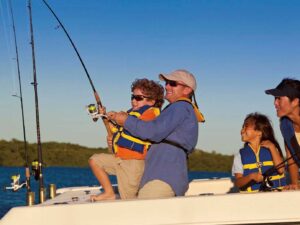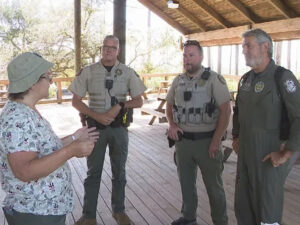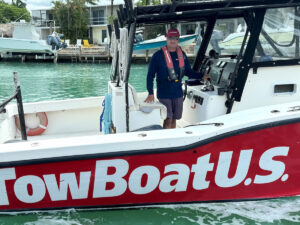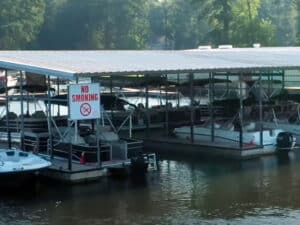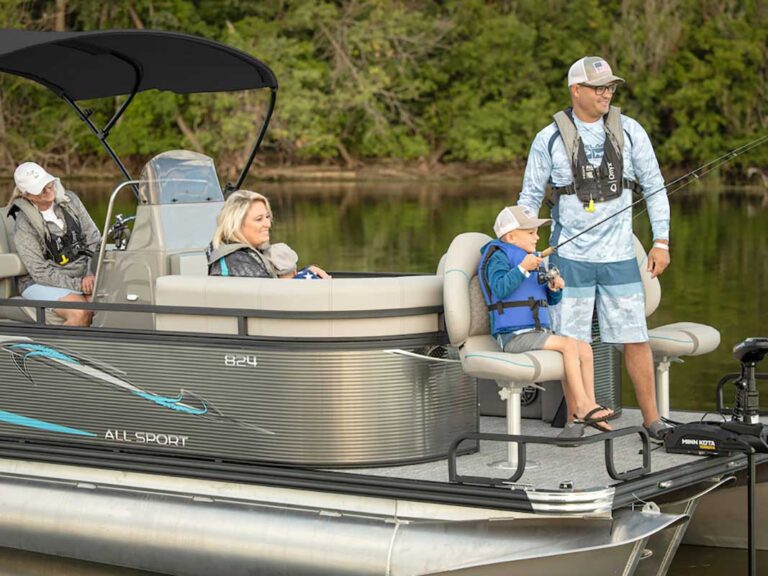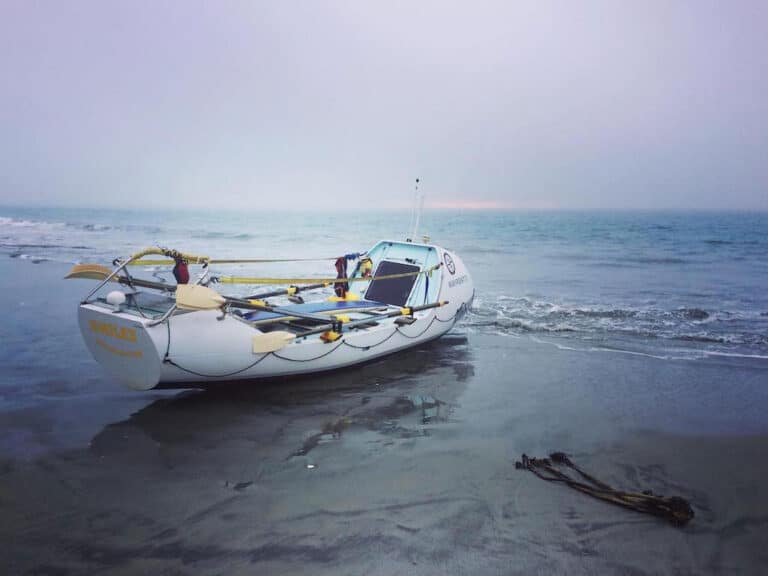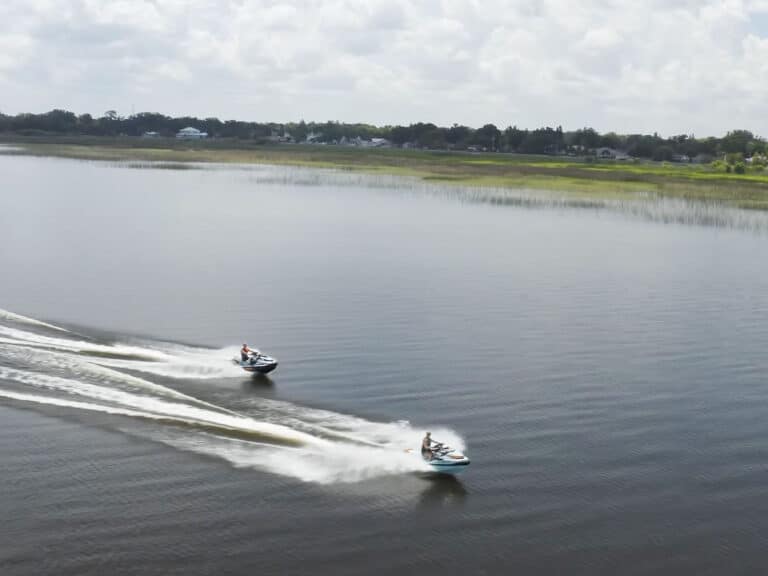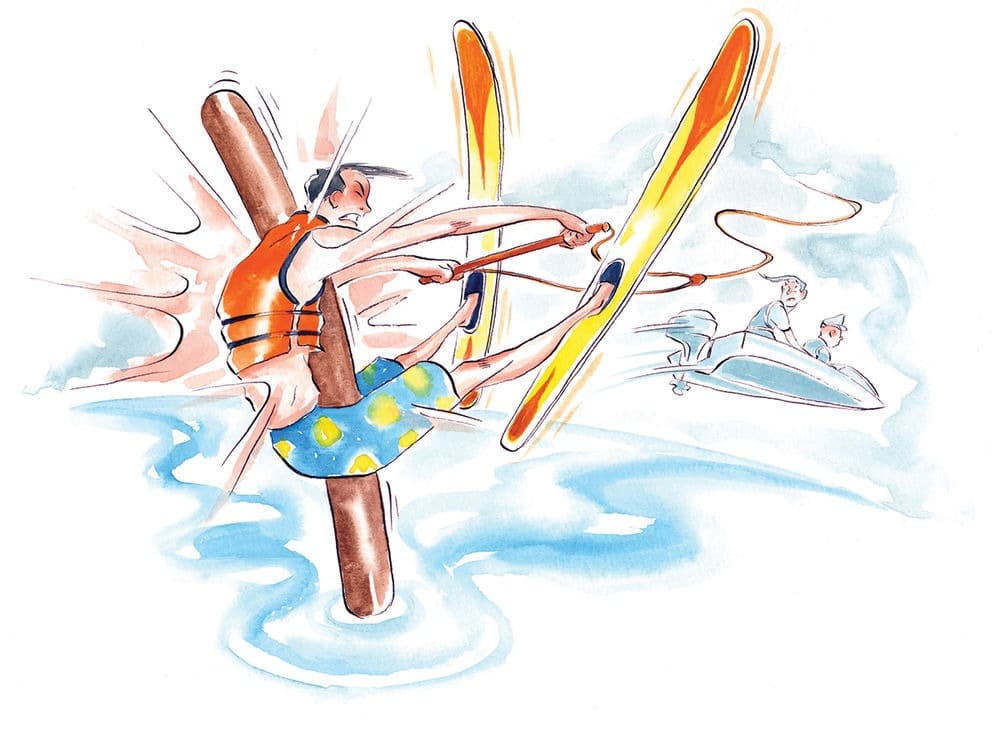
One video that’s garnered loads of likes and shares recently in our Boating Fail series on social media depicts a wakeboarder horsing around and wiping out. Specifically, he is shown sliding up close to the boat towing him in order to catch a canned beverage, and, just as the can is tossed, the hapless youth slams into a piling.
Not funny. Nor is it supposed to be. Boating Fail is intended as an object lesson that portrays what not to do. It always sparks some great conversation and comments among the members of our social media community.
In many cases, Boating Fail depicts scenarios in which at least some mitigating factors apply: weather, mechanical problems, other boaters, etc. In this case, the accident just shouldn’t have happened. Regardless of the rider’s recklessness, the captain of that boat should never have allowed that situation to develop. In fact, “captain,” a term of respect, does not apply to him or her as far as I am concerned. Anyone at the helm of a boat who passes within 2 feet of a piling while towing somebody is a fool. I just hope that thirsty young man wasn’t killed.
There are other safety tactics that watersports skippers need to abide by. Here are a few. I call them the “Falvey Five.”
1. Clearance
Ideally, stay 500 feet from docks, pilings, buoys, sandbars, mussel beds, oyster reefs, aquaculture, moored boats, moving boats or anything else. In small lakes, stay at least 200 feet from any danger.
2. Pick Up
Pick up a downed skier by approaching from downwind and on the helm side of the boat so the skipper can see. An upwind approach risks drifting over your skier. To see a video of how to pick up a downed rider produced in collaboration with our partner brand, LearnWake, visit boatingmag.com/watersports.
3. Towing Inflatable Tubes
Never tow inflatable tubes from a tower or top. When a boarder or skier falls, the stress on the line stops. If a tube does a nosedive, the stress on the hardware is unbelievably huge; coupled with the leverage provided by a tower’s height, it can cause you to lose control of the boat.
Quick Tip: Do not add ballast to your boat — this includes the weight of your crew — in excess of that specified on the capacity plate.
4. Engine Off
The more experienced we become, the more tempting it can be to leave the engine running in neutral while picking up or deploying riders, skiers or tubers. Don’t leave it running. Turn the engine off.
5. Throttle Back
It’s hard not to grin just a little wider when, with your loudmouthed brother-in-law at the end of the rope, you decide to accelerate and “give him a good ride.” Every year, hundreds of concussions and broken limbs occur this way.
There’s more to watersports safety. The Falvey Five addresses just a few of the boat-handling aspects. There are other safety measures, such as making sure everyone wears a life jacket, that are the responsibility of those at the helm to carry out.
* * * * *
The U.S. Coast Guard is asking all boat owners and operators to help reduce fatalities, injuries, property damage, and associated healthcare costs related to recreational boating accidents by taking personal responsibility for their own safety and the safety of their passengers. Essential steps include: wearing a life jacket at all times and requiring passengers to do the same; never boating under the influence (BUI); successfully completing a boating safety course; and getting a Vessel Safety Check (VSC) annually from local U.S. Coast Guard Auxiliary, United States Power Squadrons(r), or your state boating agency’s Vessel Examiners. The U.S. Coast Guard reminds all boaters to “Boat Responsibly!” For more tips on boating safety, visit www.uscgboating.org.

